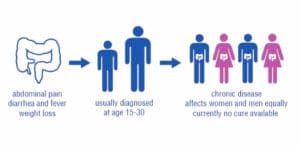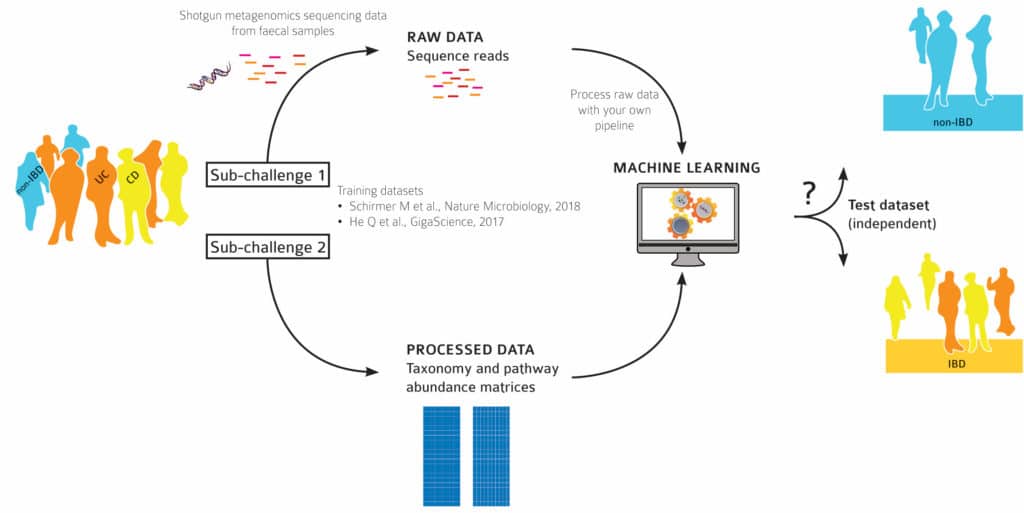We are now quite used to seeing the disruption that’s taking place in many marketplaces due to the combination of new technology and mass connectivity in the hands of visionary startups, unencumbered by the ‘rules’ of established business models. Though how about when a global corporation is bold enough to disrupt itself? This is what some think the Philip Morris International tobacco company did when it set out to create a smoke-free future through the development of Reduced Risk Products (RRPs). And the organization they founded to do this now brings together scientists from all over the world to address some of humanity’s greatest challenges, including irritable bowel disease.
As part of their process to develop smoke-free products in a way that would be robust enough to withstand intense scientific scrutiny, PMI launched sbv IMPROVER as an industry initiative to harness the wisdom of the crowd in global science. The purpose was to provide a measure of quality control through gaining external third-party validation of the methodologies used. sbv IMPROVER stands for Systems Biology Verification combined with Industrial Methodology for Process Verification in Research.
It’s a platform that’s available to engage global scientists in non-PMI challenges, and 2019’s major challenge is “Metagenomics for Inflammatory Bowel Disease Diagnosis.” Inflammatory bowel disease (IBD) is a term mainly used to describe two conditions: Ulcerative Colitis and Crohn’s disease.

Image source: World IBD Day
An estimated 1.3m IBD sufferers in the US alone, and approximately 5 million worldwide, are divided equally by gender. There is no available cure, and treatment for the many varied symptoms includes specific diets, lifestyle changes, medicines and surgery. The aim of the challenge is to design AI tools for more accurate and faster diagnosis.
Opening in August and lasting until November, the new sbv IMPROVER challenge will address fundamental questions regarding the function and composition of the microbiome, and aims at investigating the diagnostic potential of metagenomics data to discriminate patients with inflammatory bowel diseases (IBDs) – including Ulcerative Colitis and Crohn’s Disease – from non-IBD subjects.

Image source: sbv IMPROVER
The challenge brings together two large, publicly available datasets, which participants will use to train their machine learning algorithms, and a third PMI dataset, obtained from an independent study, which will be used for testing the algorithms. The participants will evaluate whether metagenomics data collected from stool samples are sufficiently informative to be leveraged as a diagnostic tool for IBD, and determine which computational methods are best suited for this task.
The outcome of the challenge will represent a step forward to providing healthcare professionals with tools based on Artificial Intelligence intended to speed up the diagnosis, replace invasive medical procedures, and lower the costs in the healthcare system.
There are numerous benefits of developing crowd-based solutions as opposed to smaller teams of scientists working ‘behind closed doors.’ Groups of established scientists have reputations to maintain, and are more likely to want to make public only what they perceive to be their best and most soundly based solution. This can lead to incremental improvements, but seldomly a major transformative breakthrough.
Whereas people making up a larger crowd, communicating through channels visible to rest of the crowd, are often more likely to mentally prod and poke each other with a wider scope of considerations and “what ifs?” to prompt contributions from participants.
Larger challenges can be broken down and different experts can tackle different parts of it. Participants can use different methods and submit different solutions from starting with the same data, and a combination of submissions often outperforms the best individual ones. This is the phenomenon referred to as the “Wisdom of the Crowds” that can establish state-of-the-art technology in a field, and identify complementary methods to solve a problem.
At the conclusion of sbv IMPROVER challenges, results are made public through publishing papers in peer-reviewed scientific journals.
Crowd-related breakthroughs and the positive disruption they can cause will be the subject of sector-leading speaker sessions and panel discussions at our next international conference, CSW Global 2019, running September 12-13 in San Francisco. Registration is open, you can reserve your place now.





0 Comments